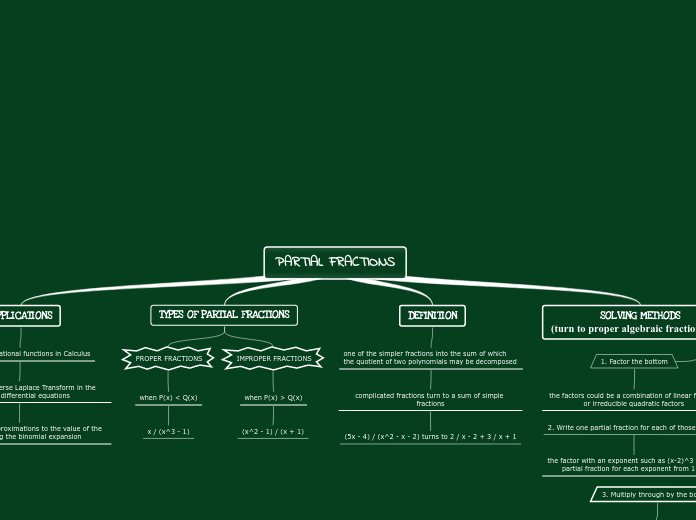PARTIAL FRACTIONS
SOLVING METHODS
(turn to proper algebraic fractions first)
4. Now find the constants A1 and A2
substituting zeros of the bottom
making a system of linear equations (of each power) and solving
3. Multiply through by the bottom
so no longer have fractions
2. Write one partial fraction for each of those factors
the factor with an exponent such as (x-2)^3 need a partial fraction for each exponent from 1 up
1. Factor the bottom
the factors could be a combination of linear factors or irreducible quadratic factors
DEFINITION
one of the simpler fractions into the sum of which the quotient of two polynomials may be decomposed
complicated fractions turn to a sum of simple fractions
(5x - 4) / (x^2 - x - 2) turns to 2 / x - 2 + 3 / x + 1
TYPES OF PARTIAL FRACTIONS
IMPROPER FRACTIONS
when P(x) > Q(x)
(x^2 - 1) / (x + 1)
PROPER FRACTIONS
when P(x) < Q(x)
x / (x^3 - 1)
APPLICATIONS
1. Integrating rational functions in Calculus
2. Finding the Inverse Laplace Transform in the theory of differential equations
3. Able to make approximations to the value of the function using the binomial expansion

